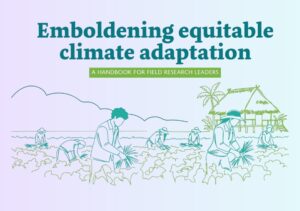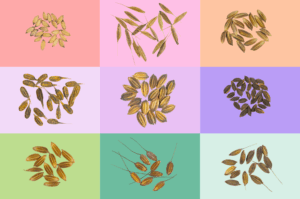
Head-to-head (H2H) trials are an effective instrument for improving adoption and varietal replacement through informal seed diffusion. Through these trials, various stress-tolerant rice varieties (STRVs) are becoming more popular among farmers in eastern India and other countries in South Asia. In 2016-17, more than 6,000 H2H trials of STRVs were conducted across 30 districts in Odisha.
Despite the good performance of the STRVs developed by the International Rice Research Institute (IRRI) and its national research partners, it takes years before a substantial number of farmers in rain-fed areas benefit from these. One reason is the slow rate of transfer from one farmer to another.
For many small farmers across the world, informal seed markets are important sources of planting materials. It has been estimated that as much as 80–90% of the seeds farmers sow in their fields come from informal seed channels. Thus, the informal dissemination of new rice varieties plays an important role in increasing the seed replacement rate. IRRI aims to strengthen the formal and informal seed systems with the support of different stakeholders of the seed value through various interventions.
The institute conducts research to develop innovative and suitable approaches and strategies for quicker varietal replacement and maximum adoption of STRVs such as H2H trials. The H2H trial is a field evaluation of a newly developed variety and the farmer’s variety. These are directly compared with each other with respect to their yield and tolerance to stresses under the farmer’s own management. These trials encourage farmers to learn at their own pace and make comparative analysis under real-world management conditions. The strategy also teaches them how to evaluate data so they can make knowledgeable decisions for improved varietal adoption and informal diffusion for varietal replacement.
The feedback of their selection and preferences also guide breeders to develop product profiling and improved varietal development. To expand the reach, H2H trials are initiated at farmer’s farm so nearby farmers can also observe, witness, evaluate, and decide on varietal selection based on their field requirement and preferences.
The trials can also be conducted through private seed dealers and the subsequent demand for varieties distributed by them used to estimate farmers’ preferences of the varieties evaluated. These trials also give dealers the opportunity to earn profits through the incentive-based sustainable model.










